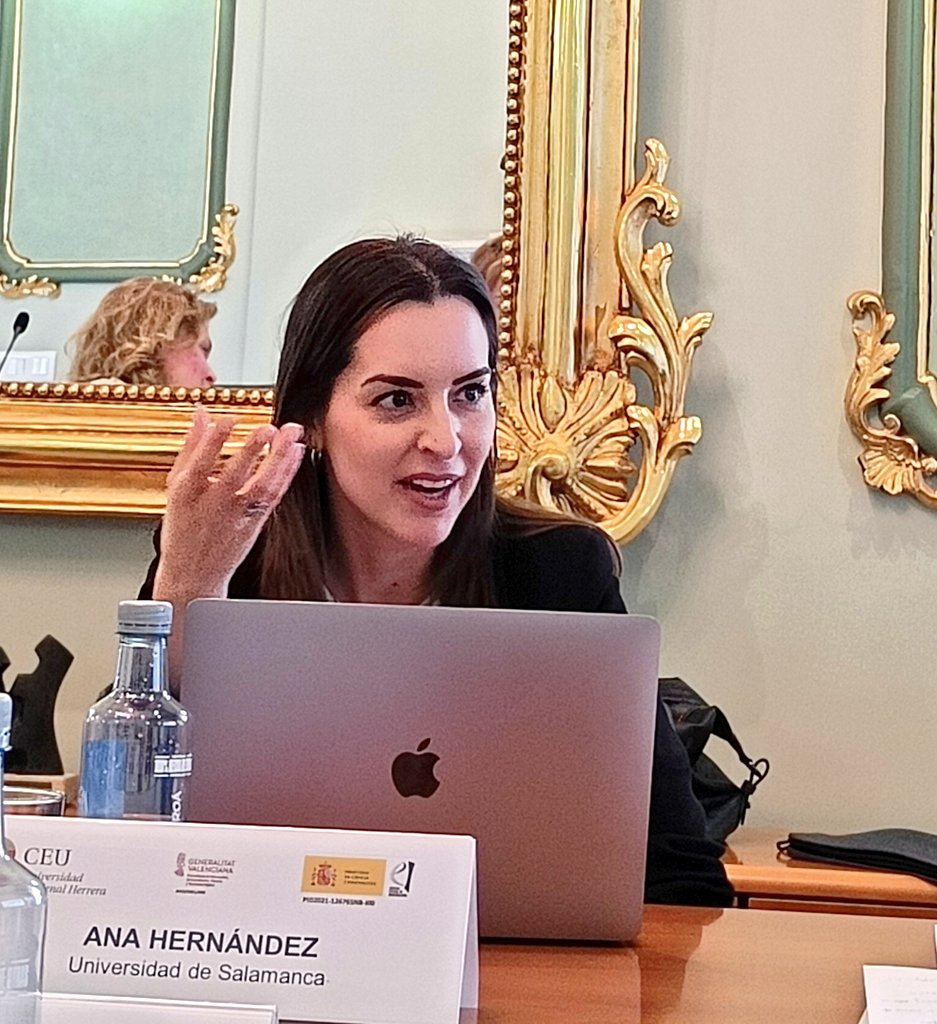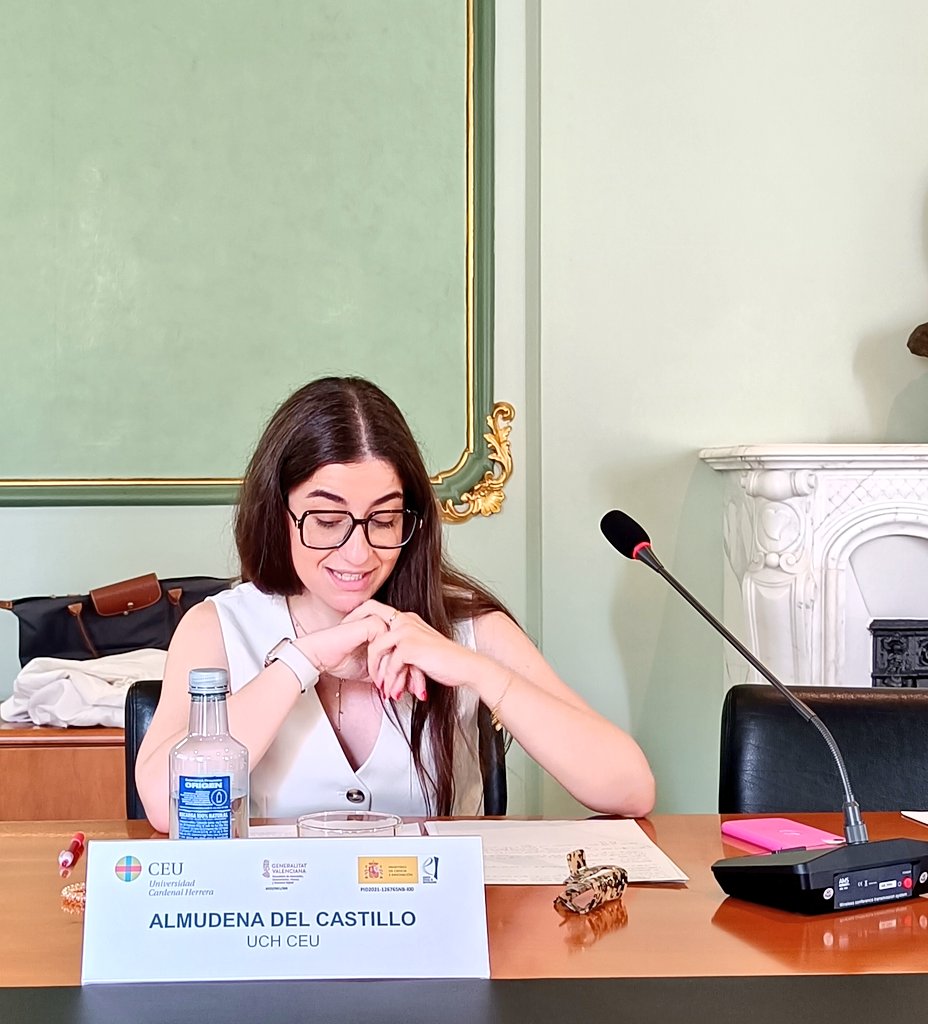Susana Sanz and Clara Portela have organized an international meeting on international sanctions
Our colleagues Susana Sanz and Clara Portela have brought together different experts on international sanctions in an international meeting entitled “Sanctions of the European Union and the Rule of Law in World Politics“. The invited guests have been the following: Sara Poli (University of Pisa), Larissa van den Herik (University of Leiden), Concepción Escobar (UNED), Thomas Kruyper (European University of Valencia) and Sara Hernández (University of Salamanca).
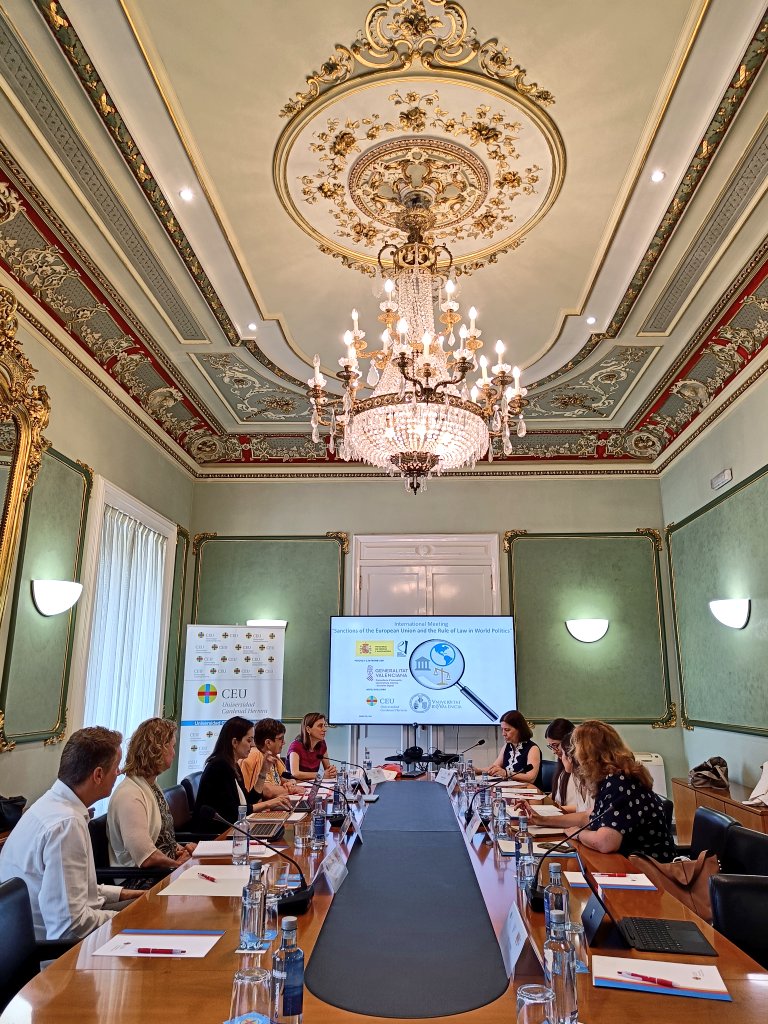
First of all, Professor Susana Sanz was the one in charge of opening the conference with a brief welcome speech and introduction to the problems posed by the international sanctions enforcement regime, especially at the community level. She spoke about the importance of the subject as well as its indisputable relationship with the current situation of the Rule of Law in the European Union, with the implementation of a budgetary conditionality mechanism that guarantees the withdrawal of European funds to all those countries that go against the democratic values that support the concept of the Rule of Law in the EU.
This meeting was then divided into three parts:
1. Morning panel: Compatibility between unilateral sanctions and international law
This panel was moderated by our colleague Nuria Hernández, who introduced the four women participants in this panel, all of them experts in the field of international sanctions and coming from different European countries and educational institutions. The participants in this first panel were: Sara Poli, Larissa van den Herik, Concepción Escobar and Clara Portela.
First of all, Sara Poli focused on the European Union sanctions imposed on Russia as a consequence of the invasion of Ukraine, specifically on the principle of territorial integrity and independence in the countermeasures designed to punish Russia after the war attack on Ukraine.
The speaker, who is an expert on restrictive measures, spoke on the case law of the Court of Justice of the European Union (hereinafter “CJEU”), as well as on the direct relationship between the rule of law and the restrictive measures available to the EU. According to the rapporteur, “the EU’s unprecedented restrictive measures are not only legal, but should be welcomed.” In this sense, she has pointed out that these types of measures, in addition to being temporary, must be compatible with international law.
Finally, she emphasized the need to take efficient measures, not only to curb aggression, but also to solve other deficiencies in the system.
Secondly, Larissa van den Herik raised numerous issues related to international sanctions. She pointed out that there are many types of sanctions and that the difference between UN sanctions and non-UN sanctions is almost non-existent. In fact, in practice, their impact is the same. In addition, she indicated that there is a lot of confusion in the fact that the EU acts as a State when imposing sanctions, an aspect on which she insisted that greater clarity and precision should be given.
Likewise, she distinguished between Western and North-Western states in terms of sanctions, and affirmed that “Human Rights lawyers are openly asking for sanctions to be imposed”.
Finally, she distinguished between sanctions imposed by the EU and those imposed by other international organizations, and introduced the concept of “third party countermeasures”, in other words, can third parties acting as individual subjects impose sanctions? In any case, the expert states, “It is necessary to establish a regime that regulates the different types of sanctions.”
The third speaker on this panel was Concepción Escobar, who focused on the relationship between sanctions, human rights and International Humanitarian Law. The speaker explained that the UN is aware that there have been serious violations of human rights related to the imposition of sanctions. In this sense, the EU adopted in 2020 regulations establishing a specific regime for the adoption of sanctions as a consequence of the violation and abuse of human rights.
In parallel, she has exposed the need to determine a balance between the establishment of a positive and negative system of sanctions. In her positive approach, the Professor spoke about respect for international human rights and the establishment of sanctions to address problems related to national security and terrorism. In reference to the negative approach, the speaker highlighted the punitive nature of sanctions and how this has a negative impact on citizens.
In any case, she says, when we talk about human rights: “Measures and sanctions need to be operational“. To this end, we must ask ourselves how the system of international sanctions affects humanitarian action and how the international community has reacted to it.
Finally, Clara Portela explained the global context of unilateral sanctions and the evolution of sanctions. She focused on the legitimacy of sanctions, while affirming that the sanctions system is becoming more and more extensive and that, at times, there is a tendency to use aggressive rhetoric.
She also highlighted how the sanctions system is “demonized” in the international community, as well as how difficult it is to achieve an interdisciplinary dialogue.
In the Professor’s words, “Sanctions are not always restrictive or preventive in nature, but are often imposed to show our allies that they have our support, while at other times they are a consequence of a need raised by citizens and harshly criticized in a public manner.”
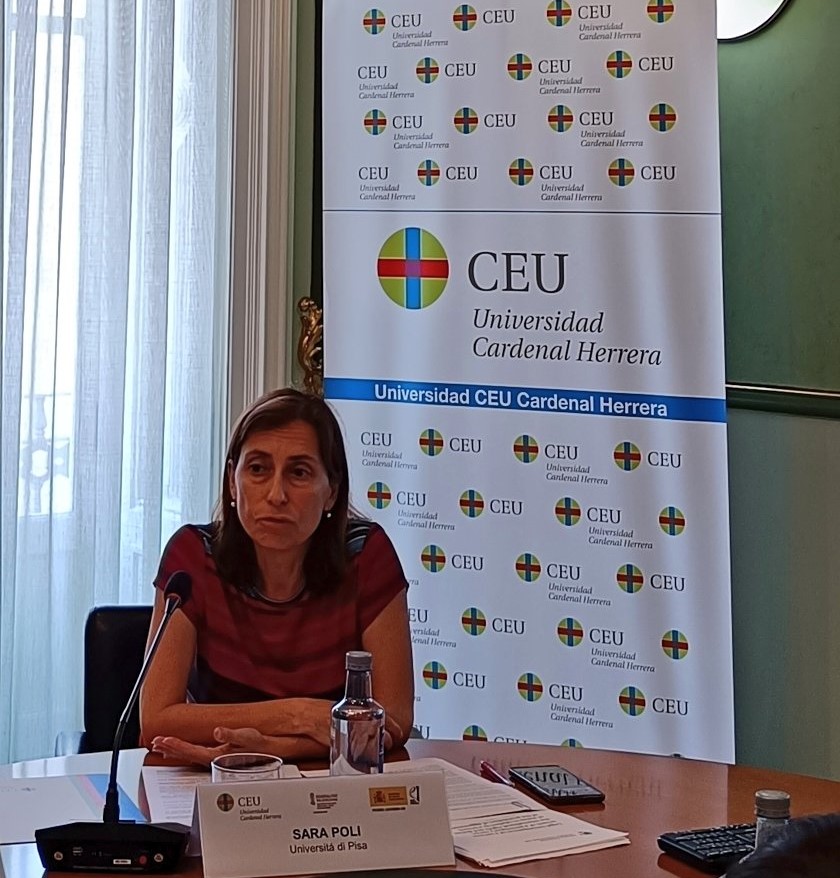
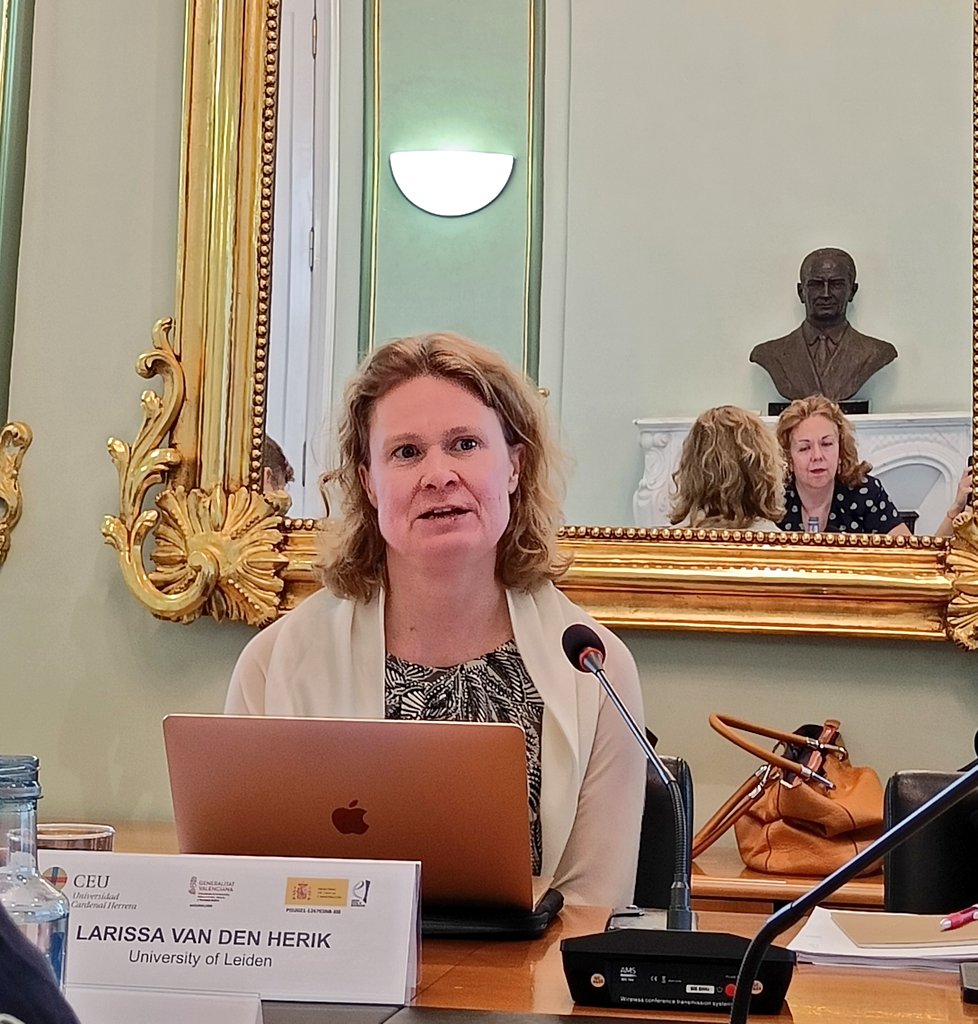
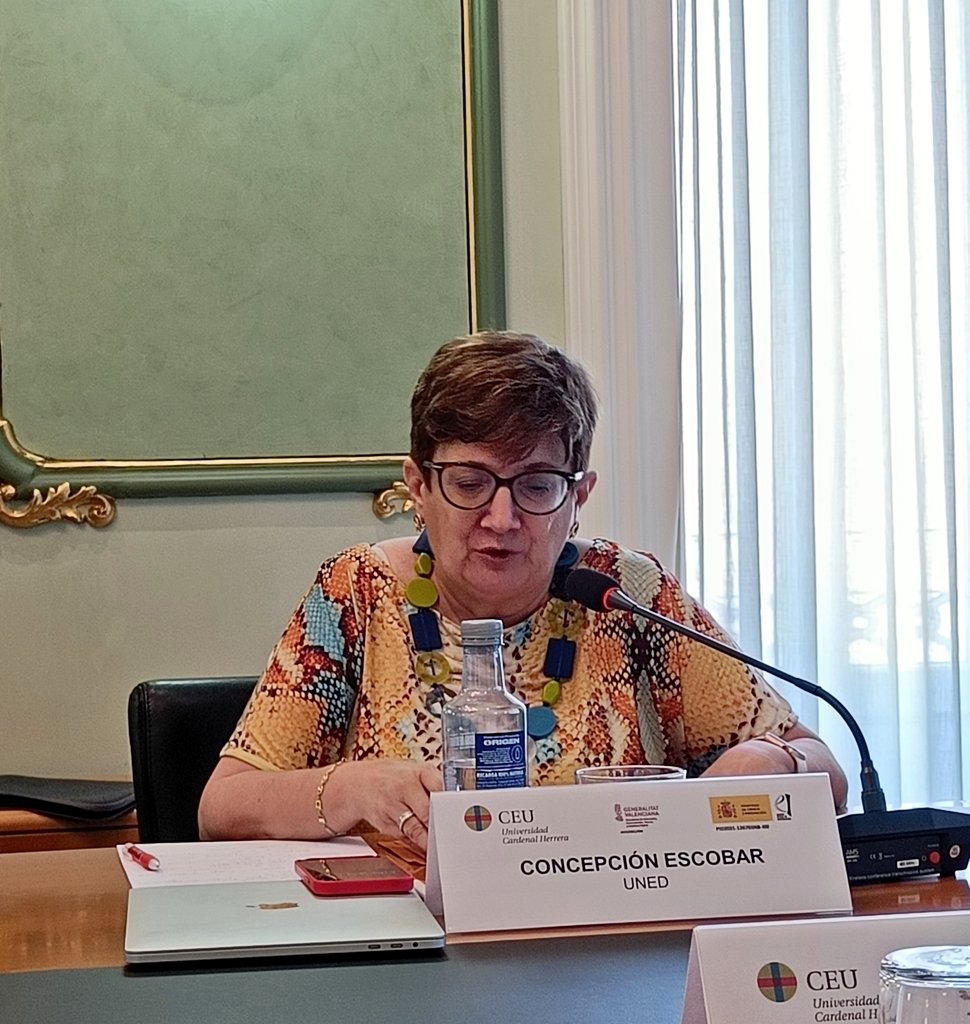
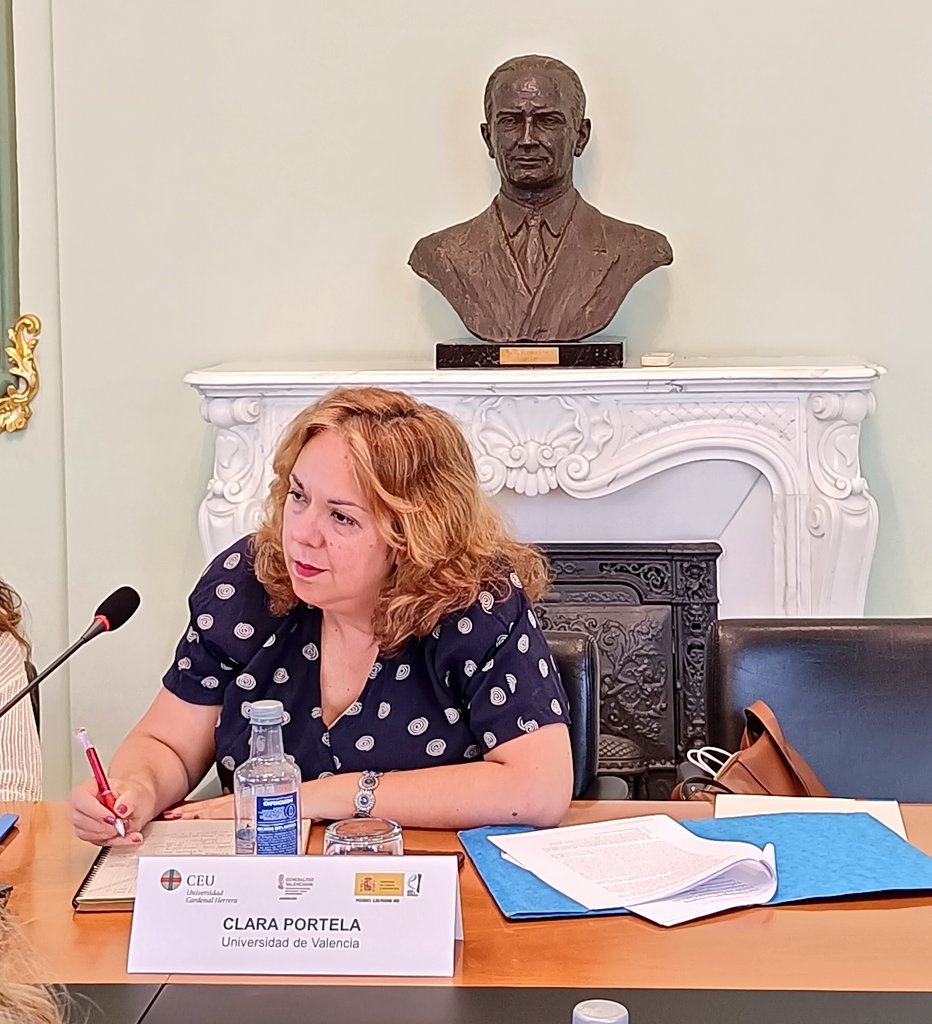
3. Roundtable dicussion
Following the intervention of each speaker, opinions were exchanged on the sanctions regime itself; the need for the EU to integrate the rule of law and procedure in sanctions; as well as distinguishing the objectives of the regimes, those that seek to cooperate and protect, and those that seek to promote global goods.
This exchange of ideas and opinions was joined by the intervention of Ana Hernández, who wanted to offer her point of view on the sanctions regime, speaking about the need to separate the objectives of each regime in the field of international sanctions. She also questioned the problem posed by the restrictive measures imposed on Russia by the European Union and the invasion of Ukraine, specifically, their legitimacy. She commented on the imposition of measures such as the immobilization of goods and the restriction of free movement in the territory of the EU, which already affects more than 1,500 Russian individuals and entities.
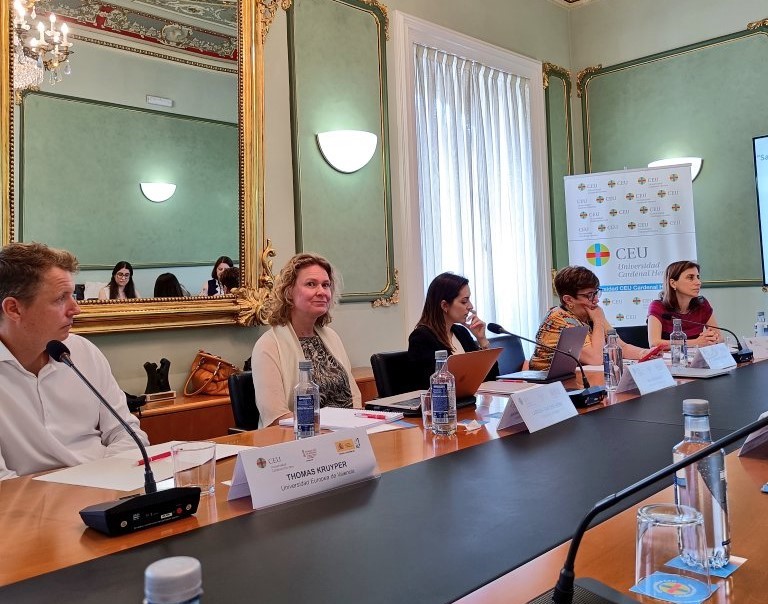
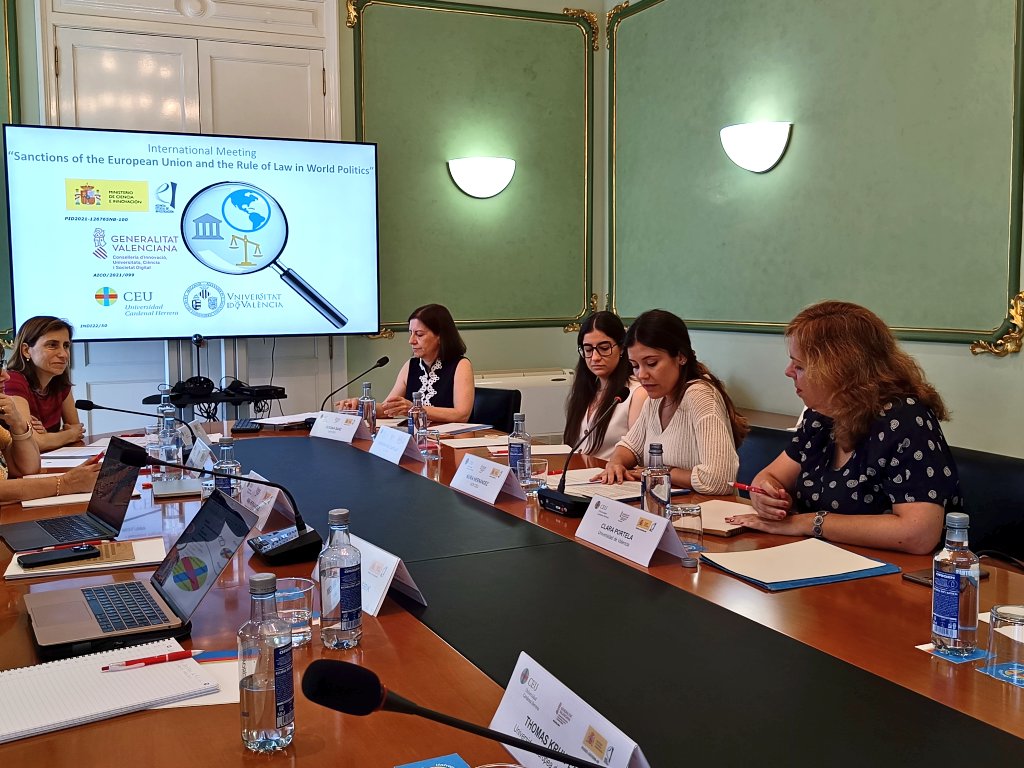
3. Afternoon panel: Sanctions and the global political and legal context
This panel has been moderated by Clara Portela with the participation of Ana Hernández and Almudena del Castillo, a research assistant of our project on the Rue of Law Crisis in EU, who is also a PhD student under the supervision of Prof. Susana Sanz.
Firstly, Ana Hernández highlighted three categories of friction between the resolutions of the UN system and those of the EU; these being the motivation, the evidence and the obligation to proceed to their review. The speaker stated that the standards for the imposition of sanctions are much higher in the EU, and that UN sanctions do not have sufficient motivation, while evidence in the EU is mandatory, as is the review of sanctions.
Secondly, Almudena Del Castillo, introduced the problem posed by the crisis of judicial systems as a challenge to the rule of law in the EU, and how the democratic decline that the EU is suffering is threatening the integrity, independence and impartiality of the judiciary in the face of an increasingly skeptical citizenship about its neutrality.
She also spoke about the recent decision of the European Court of Human Rights in the Alonso Saura vs. Spain, which raises the question of whether, in the national election procedure by the General Council of the Judiciary (CGPJ), Article 6 of the European Convention on Human Rights (right to a fair trial and to an impartial judge) was violated when the CGPJ selected as President of the TSJ (High Court of Justice) of Murcia a candidate who had less merit and ability than the applicant.
